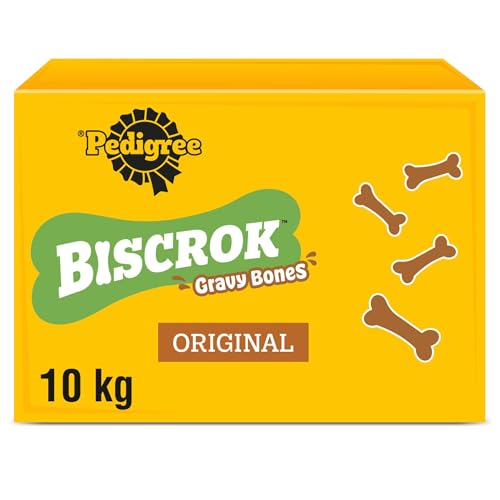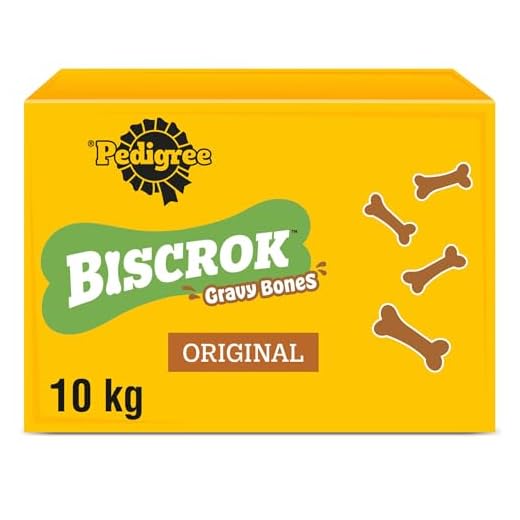








While it might be tempting to share that cheesy, crunchy treat with your furry friend, it’s best to reconsider. These snacks often contain ingredients that can cause digestive distress in canines, such as high levels of salt, artificial flavourings, and preservatives. My own pup, Max, had an unfortunate experience after sneaking a few from the table; he ended up with an upset stomach that kept us both up all night.
It’s important to remember that not all human snacks are suitable for our four-legged companions. The high sodium content can lead to increased thirst and even potential health issues over time. I learned this the hard way after Max developed a habit of begging for table scraps, which resulted in a few trips to the vet for check-ups. Keeping his diet focused on proper kibble and occasional dog-friendly treats has made a significant difference in his energy and overall well-being.
Instead of sharing those crunchy morsels, consider healthier alternatives like carrot sticks or specially formulated dog treats. These options are not only safer but also beneficial for his teeth and digestion. Watching Max happily munch on his favourite carrot has been a rewarding experience, and I can rest easy knowing I’m making the right choices for him.
Snack Choices for Your Canine Companion
Opting for snacks that are safe and healthy is vital. Crunchy, cheesy snacks, while tempting, should be avoided. These products often contain high levels of salt, artificial flavourings, and preservatives that can upset your furry friend’s stomach. Instead, consider offering alternatives that provide nutrition without the risks.
Healthier Alternatives
- Carrots: Crunchy and naturally sweet, a great low-calorie option.
- Peanut Butter: Ensure it’s xylitol-free; dogs adore the taste.
- Plain Popcorn: A fun treat, just skip the butter and salt.
- Apple Slices: Remove the seeds; a refreshing snack full of vitamins.
Signs of Indigestion
Should you choose to indulge your pet with human food occasionally, monitor for signs of discomfort. Symptoms such as vomiting, diarrhea, or lethargy may indicate that the snack didn’t agree with them. Always consult with your veterinarian if concerns arise.
Prioritising your companion’s health by choosing appropriate snacks can lead to a happier, healthier life together. Always read labels and educate yourself about what’s safe for your pet.
Nutritional Content of Doritos
These crunchy snacks contain high levels of carbohydrates and fats, which may not align with the dietary needs of canines. A typical serving size includes around 150 calories, primarily derived from processed corn and oils. This calorie density can lead to weight gain if consumed regularly.
Ingredients often feature artificial flavourings and preservatives, which are not suitable for canine digestion. The sodium content is particularly concerning, with some varieties containing over 200 mg per serving. Excessive salt can lead to health issues, including hypertension and kidney problems in pets.
While the cheesy flavour may be appealing, the lactose content in some versions can cause gastrointestinal upset in lactose-intolerant animals. Furthermore, certain spices and seasonings used may be harmful, such as garlic or onion powder, which are toxic to many four-legged companions.
In summary, the nutritional profile of these snacks does not support a healthy diet for your furry friend. It’s advisable to stick with pet-safe treats specifically formulated to meet their nutritional requirements.
Potential Risks of Feeding Snack Chips to Canines
It’s best to refrain from sharing these crunchy treats with your furry friend due to several potential threats to their health. High sodium levels can lead to excessive thirst and urination, and in severe cases, sodium ion poisoning. Symptoms may include vomiting, diarrhoea, and even seizures.
Additionally, the spices and flavourings used in these snacks can upset your pet’s stomach. Ingredients like onion and garlic powder are particularly harmful, as they can cause damage to red blood cells, leading to anaemia. Even small amounts can accumulate over time, posing a serious risk.
Fat Content and Weight Gain
These treats are often high in fats, which can result in weight gain and obesity in canines. Excessive weight can lead to joint problems and other health issues. If your pet has a sedentary lifestyle, the risk increases significantly. It’s crucial to monitor their weight and adjust their diet accordingly.
Choking Hazards
Another concern is the shape and size of these snacks. Their texture can make them a choking hazard, especially for smaller breeds. If a dog swallows a piece without chewing, it could lead to serious complications requiring veterinary intervention.
| Risk Factor | Potential Consequences |
|---|---|
| High Sodium Content | Sodium ion poisoning, excessive thirst, vomiting |
| Spices (Onion, Garlic) | Red blood cell damage, anaemia |
| High Fat | Obesity, joint problems |
| Choking Hazard | Airway obstruction, potential surgery |
Keeping your canine companion healthy means making informed choices about their diet. Opt for treats specifically formulated for pets to ensure their safety and well-being.
Signs of Allergic Reactions in Canines
Monitor your pet closely for any of the following symptoms that may indicate an allergic response:
- Itching and Scratching: Excessive scratching, particularly around the ears, paws, or belly, can signal an allergic reaction.
- Skin Irritation: Look for redness, swelling, or rashes on the skin. These signs often accompany itching.
- Gastrointestinal Distress: Vomiting or diarrhoea following the consumption of certain foods can suggest an intolerance or allergy.
- Respiratory Issues: Coughing, sneezing, or difficulty breathing may arise in response to allergens.
- Ear Infections: Frequent ear infections or discomfort in the ears can indicate an underlying allergy.
- Swollen Face: Observe for swelling around the eyes, muzzle, or other areas of the face, which may occur during an allergic reaction.
If you notice any of these signs, consult a veterinarian promptly to determine the cause and appropriate treatment. Keeping a record of your pet’s diet and symptoms can assist your vet in diagnosing the issue more effectively.
Alternatives to Doritos for Dog Treats
Opting for healthier snack options can significantly benefit your canine companion. Consider offering homemade treats that are not only safe but also nutritious. One of my favourite recipes is for pumpkin and peanut butter biscuits. Simply mix 1 cup of pumpkin puree, 1/2 cup of peanut butter (make sure it’s xylitol-free), and 2 cups of whole wheat flour. Roll them out and cut into fun shapes before baking until golden.
Fruits and Vegetables
Many fruits and veggies are safe and enjoyable for pups. Carrot sticks are crunchy and provide a satisfying chew, while apple slices (without seeds) can be a refreshing snack. Blueberries are packed with antioxidants and make for a great training treat. Just remember to introduce any new food gradually to monitor for allergies.
Commercial Dog Treats
There are numerous high-quality commercial treats available that prioritise canine health. Look for options made with natural ingredients, like sweet potato chews or chicken-flavoured biscuits. Always check the label for additives and preservatives. It’s worth investing in products that align with your pet’s dietary needs.
Experimenting with different treats can be a fun activity. My dog loves trying new flavours, and it’s a great way to bond. Just keep an eye on portion sizes to maintain a healthy diet. Healthy treats contribute to overall well-being and can even improve your pup’s mood and energy levels.
How Often Can You Treat Your Pup?
Limit treats to about 10% of your canine’s daily caloric intake. If your furry friend requires 500 calories a day, aim for 50 calories from snacks. This helps maintain a healthy weight and prevents dietary imbalances.
Consider the type of treat. Natural options, like carrots or apple slices, can be given more frequently. Processed snacks should be reserved for special occasions or training sessions. For example, I give my dog a small piece of fruit every other day, while store-bought goodies appear only during training, keeping her motivated without overindulging.
Monitor your pet’s reaction to treats. If you notice any digestive issues or behavioural changes, reduce the frequency or switch to different options. Regularly assess your dog’s overall health and adjust treats as needed. Consulting your vet can provide tailored advice based on your dog’s specific needs.
Establish a routine. Regular timing for treats helps your pup anticipate and enjoy them without excessive indulgence. I find that giving my dog a small snack after our evening walks creates a positive association, making her excited for both the exercise and the reward.
Consistency is key. By adhering to these guidelines, you ensure a balanced approach to treating your pet, promoting their health and happiness while enjoying those delightful moments together.
What to Do If Your Canine Consumes Chips
If your furry friend has snacked on chips, the first step is to stay calm. Most likely, there’s no immediate cause for concern, but it’s wise to monitor their behaviour closely. Check the ingredients list of the snack. If the product contains onion or garlic powder, these ingredients can be harmful to pets. In such cases, contacting a veterinarian is advisable.
Monitor for Symptoms
Keep an eye on your companion for any unusual signs. Symptoms like vomiting, diarrhoea, excessive thirst, or lethargy may indicate distress. If any of these occur, reach out to your vet without delay. It’s always better to err on the side of caution.
Hydration is Key
Make sure your pet has access to fresh water. Salty snacks can lead to dehydration, so encouraging your dog to drink can help mitigate potential issues. If your canine shows no adverse reactions, a little treat now and then probably won’t hurt them, but regularity should be avoided.
Consulting Your Veterinarian About Snacks
Always consult your veterinarian before introducing new treats into your pup’s diet. They can provide tailored advice based on your canine’s health history, age, and any specific dietary needs. For instance, some breeds may have sensitivities to certain ingredients, and your vet can help identify potential risks.
During our last visit to the vet with my dog, I learned that many seemingly harmless snacks can actually be unhealthy. I had no idea that certain seasonings and preservatives could be problematic. My vet suggested keeping a list of safe and unsafe treats, which has been incredibly helpful. This way, I avoid any accidental feedings of harmful foods.
Understanding your pet’s nutritional requirements is crucial. Some dogs may thrive on high-protein diets while others may need low-fat options. Regular discussions with your veterinarian can help ensure that treat choices are suitable and enjoyable for your furry friend.
If you’re curious about behavioural training, you might find it beneficial to learn how does neutering your dog help with potty training. This knowledge can assist in establishing a well-rounded routine that includes appropriate snacks.
Always remember that your vet is a valuable resource. They can guide you in making informed decisions about your dog’s snack options, ensuring both safety and satisfaction in their diet.







